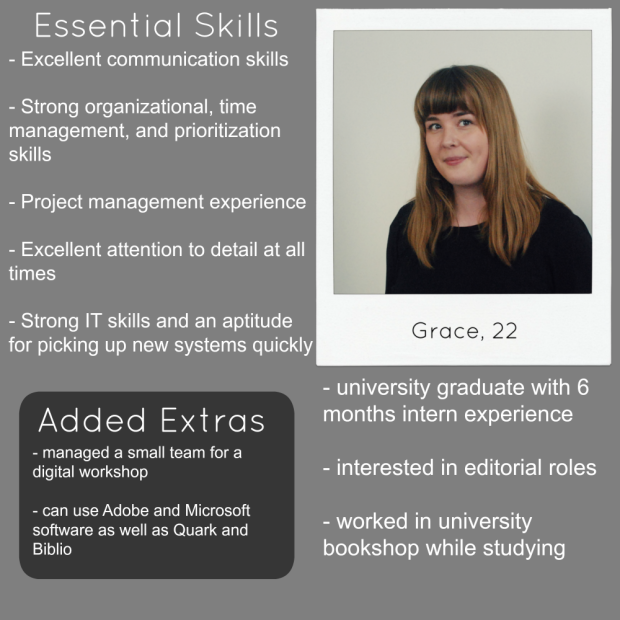You probably found this site by wanting to know how to get a job in academic publishing, so let’s start with the basics. Make sure you keep your eye open on job sites aimed at publishing. It is possible to find some job listings on a more general site – such as Reed or Indeed – but the bookseller’s job listings and Atwood Tate tend to be solely focused on jobs in publishing. Of course, there are plenty of other websites to find publishing jobs, so don’t limit your search by only using these.
It also helps to follow these accounts on twitter, as often new job offers will be featured there first. You can also follow a selection of publishers and academic presses on twitter, as they will promote new job listings too.
Please note: if you are looking for work experience, this is usually offered unpaid. The key here is that you will gain experience, which will in turn help you find a job. Internships should always be paid if you are expected to work a certain amount of hours a week or if there has been a contract – verbally or written. You can find more information on the government’s website, but I found this page from the University of Sussex more helpful.
This section is focused on skills you need for certain job roles – focusing on editorial, marketing and production. If you haven’t studied publishing at university, but are interested in publishing, then you will find that plenty of your skills are transferable. To help you focus on which skills you might need for a certain job role, we have researched these skills and created some ‘ideal’ candidate templates. Do not worry if you do not have all of these skills, as most entry level jobs expect some level of training to be required – this is just to give you an idea!
Marketing

Laura would be an ideal candidate for a role in marketing – such as a Marketing Assistant, or a Web and Direct Marketing Assistant – as her interest in social media and marketing would shine through with her ‘can-do’, positive attitude. By having successfully managed a social media campaign at university, she should already have evidence of excellent organisation, attention to detail and great communication skills. Having worked with brands through her lifestyle blog, she shows that she can work to deadlines and is able to work independently and with a team – a PR team in this example.
Production
The stand-out feature on Adam’s profile is that he can speak four languages. This would be a great thing to have on your CV at all times, but if you’re applying for a larger press which works internationally then it might move you from the ‘maybe’ to the ‘yes’ pile. By having the confidence in his proofreading and copyediting skills to have created a freelance business at university should show that he has good organisational skills, and has a keen eye for detail. Adam would be ideal for roles such as an Assistant Production Editor or a Production Assistant.
Editorial
As most people applying for jobs will be of graduate level, it is a good idea to show off any relevant work experience you might have. Grace is able to cover ‘project management experience’ by having managed a small team for a digital workshop. Although it isn’t strictly related to publishing, it does show project management and that the key thing here. These skills would be great for someone looking to work as an Editorial Administrator or a Commissioning Assistant.


One comment